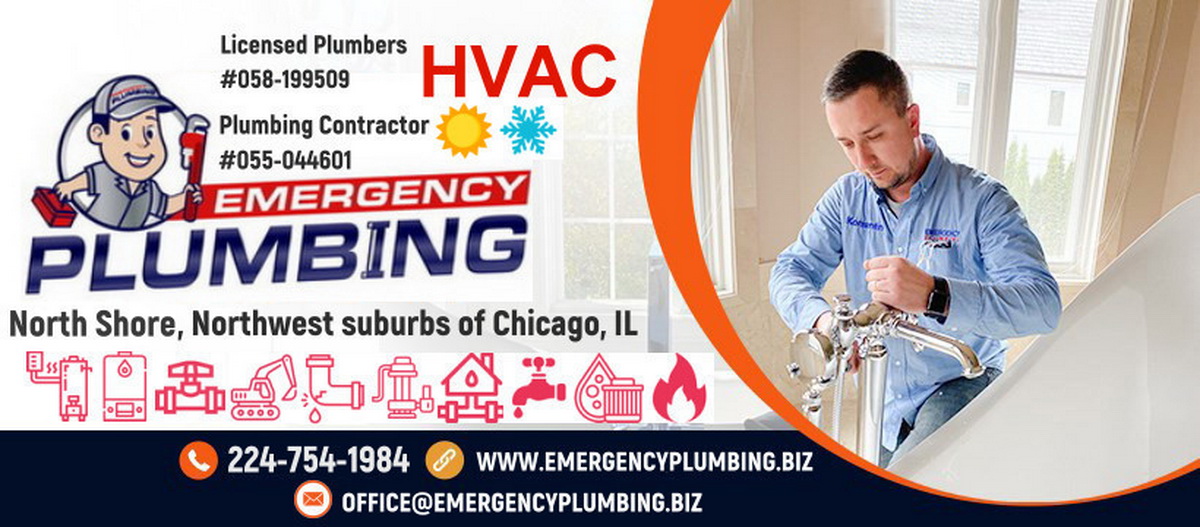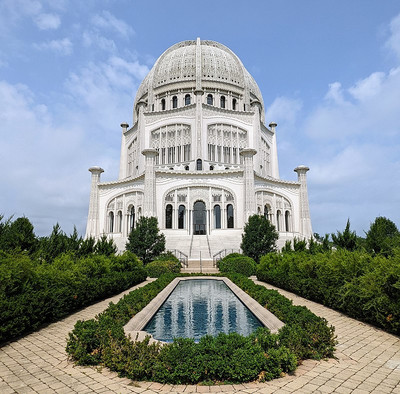Wilmette, IL, Plumbers Near Me, 24/7 Emergency Plumbing, HVAC
WHY CHOOSE OUR PLUMBING COMPANY?
- Our team consists of highly skilled, licensed, and insured emergency plumbers.
- We understand the urgency of plumbing emergencies and offer 24/7 availability.
- With years of experience, we provide efficient and professional service.
- Burst Pipe Repair:
We swiftly respond to burst pipes to prevent water damage and restore your plumbing system.
- Leak Detection and Repair:
We employ advanced technology to locate and promptly repair hidden leaks.
- Water Heater Repair and Replacement:
If your water heater malfunctions, we can repair it or provide efficient replacement options.
- Drain Cleaning:
Our specialists use state-of-the-art equipment to clear blocked drains and restore proper flow.
- Gas Leak Detection and Repair:
We prioritize safety by promptly detecting and repairing gas leaks.
- Excavation Services:
We also offer fast and affordable emergency excavation services.
- HEATING
- AIR CONDITIONING
- AIR DUCT CLEANING
We provide all of our plumbing and other services in the area. We are happy to answer any questions you may have. You can also read a lot of positive reviews about us !
Wilmette is a village in New Trier Township, Cook County, Illinois, United States. Bordering Lake Michigan and Evanston, Illinois, it is located 14 miles (23 km) north of Chicago's downtown district. Wilmette had a population of 28,170 at the 2020 census. The first and only Baháʼí House of Worship in North America is located here. Wilmette is also home to Central Elementary School and Romona Elementary School, both recent recipients of the National Blue Ribbon award bestowed by the U.S. Department of Education.
Sheridan Road opened on October 8, 1900. This opened up the North Shore to automobiles, providing a north-south arterial roadway along the lakeshore.
In 1900, by a margin of 62 to 52, village residents approved a referendum to establish a free public library, thus establishing the Wilmette Public Library. In 1905, with the assistance of funds from Andrew Carnegie, the village was able to erect a new building for its library at the corner of Park and Wilmette Avenues.
The North Shore Channel, which terminates in Wilmette, was a crucial part of the huge engineering and sanitary project to reverse the course of the Chicago River in order to carry Chicago's sewage away from Lake Michigan. In 1907, upon beginning construction of the North Shore Channel, Sanitary District of Chicago president Robert R. McCormick noted that the construction of the canal would ultimately create approximately twenty-two acres of landfill from excavated materials next to the mouth of the canal. Illinois law stipulated that an organized Park District had the authority to, without any cost, take possession of any man-made land for use as parkland. Citizens, thereafter, petitioned for a vote to be held on the prospect of establishing Park District.
An election was held January 1908, with 174 votes in favor of creating a park district and 37 votes against it. The Wilmette Park District Board of Commissioners was appointed, serving the entirety of the village, as well as a segment of northeast Evanston (responsibility for which was later assumed by the Evanston Park District). The Wilmette Park District's Board of Commissioners held their first meeting on February 17, 1908. State legislation was passed May 25, 1911, granting the Park District ownership of the landfill. The village acquired additional land bordering the landfill, including a parcel gifted to the village by Northwestern University. Ultimately, the Park District gained ownership of a riparian property stretching between Lake Avenue and Forest Avenue. Today, this land forms much of Gillson Park. The excavated material that formed the landfill turned out to largely consist of a relatively impervious blue clay. Mulchings and plantings began part of a years-long process of transforming the landfill into usable parkland.The North Shore Channel project, completed in 1909, also resulted in the creation of Wilmette Harbor.
Wilmette's first informal beach was established at the foot of Elmwood Avenue in 1910. Wooden steps were constructed down the bluff to allow access to the beach from the street. In 1914 the Wilmette Beach Improvement Association was founded to clean up the village's unsupervised shoreline. The group established an official swimming beach at the foot of Lake Avenue, the site of today's Gillson Beach, with facilities including a bathhouse, swings, benches, and umbrellas.
In 1912 the Northwestern Elevated Railroad (today's Chicago Transit Authority Purple Line) extended its service into Wilmette. This occurred without permission from the village, as the tracks were extended from the route's existing terminal in Evanston into the village's border under the cover of darkness before the morning of April 1, 1912. Later that year, a second track was added in Wilmette and the station's platform was elongated. In 1913 the tracks were extended deeper into the village and the makeshift station that had been constructed under the cover of darkness was replaced with two new stations in Wilmette at Isabella and Linden, the latter of which was designed by Arthur U. Gerber and served as the line's terminus.
More than 400 men from Wilmette and Gross Point Village served during World War I. 150 of them served overseas, thirteen (12 from Wilmette, and one from Gross Point) lost their lives in the war. Many women back home volunteered in the Wilmette branch of the American Red Cross Auxiliary.
By 1918 the village of Wilmette had increased its population to 5,000 from a population of only 1,500 twenty years earlier. The Wilmette Health Center (a free clinic) was founded that same year.


Comments
Post a Comment